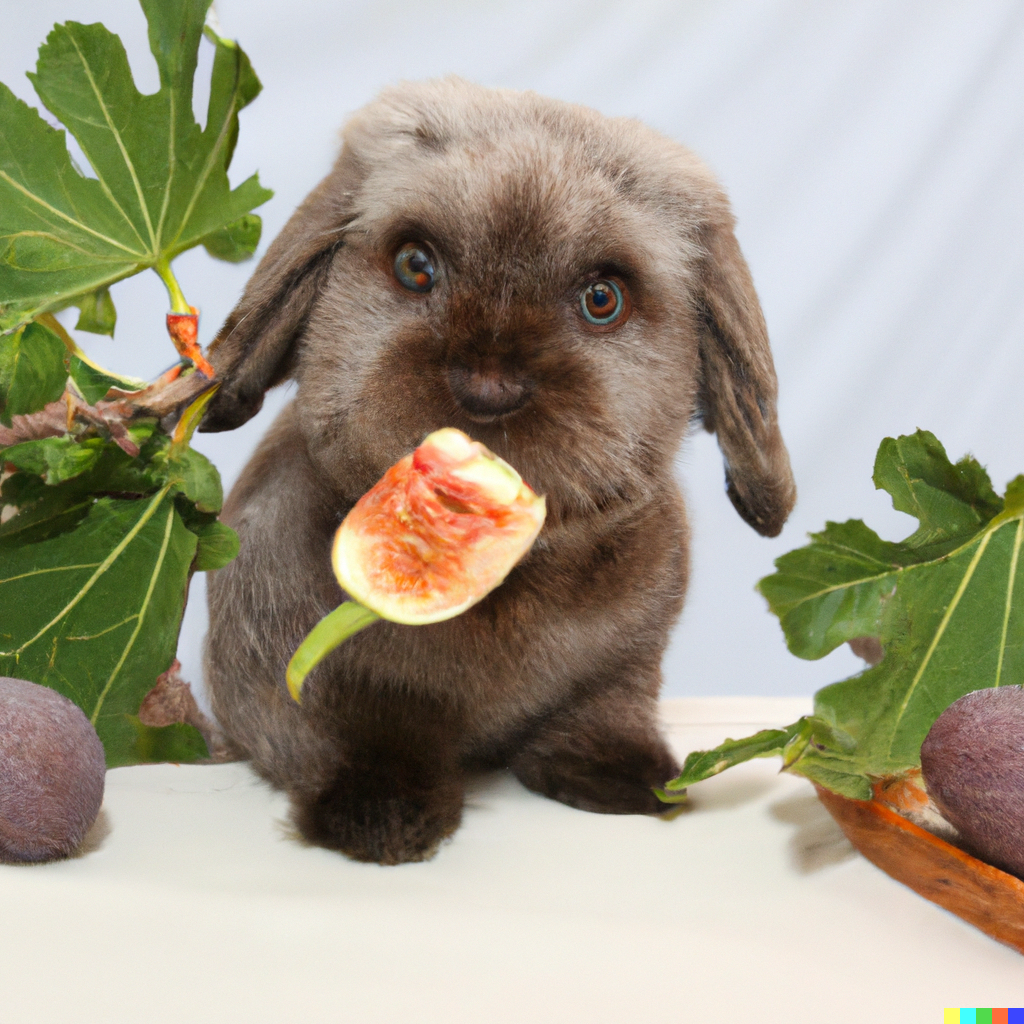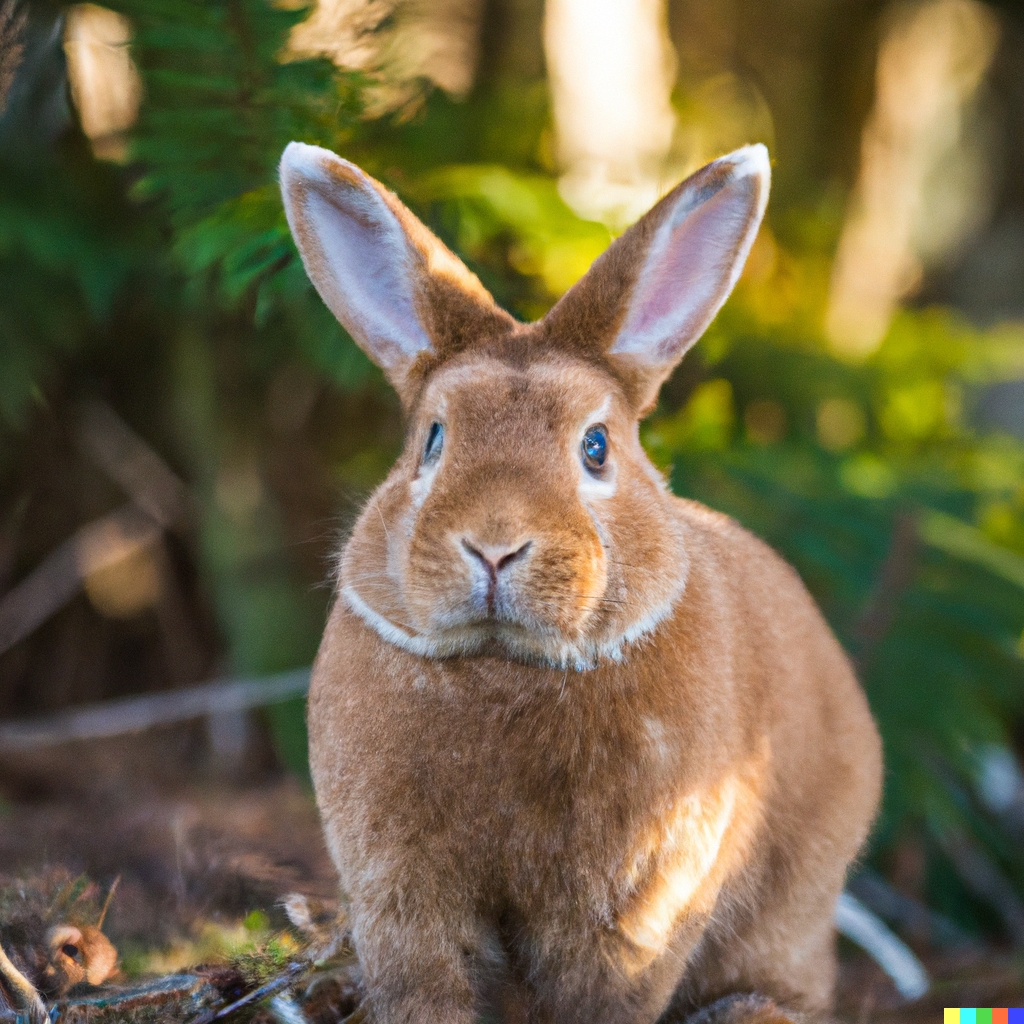Dwarf rabbits are a type of small-sized rabbit that can make adorable and lovable pets. Commonly known as dwarf breeds, they generally weigh between two to four pounds when fully grown. If you’re considering adopting a dwarf rabbit, it’s important to know how big they get so you can make sure you have the right size enclosure for them. This article will provide a size comparison chart of dwarf rabbit breeds and tell you how big they get.
How Big Do Dwarf Rabbits Get? A Size Comparison Chart for All Breeds
Dwarf rabbits are a popular choice for pet owners due to their small size and playful nature. But exactly how big do dwarf rabbits get? To answer this question, it is important to understand the various breeds of dwarf rabbit and their size differences. This article will provide a size comparison chart for all breeds of dwarf rabbit, so you can determine which breed best suits your home and lifestyle.
The Netherland Dwarf is the smallest breed of dwarf rabbit, weighing only 2-2.5 pounds (0.9-1.1 kg). They have a short, fine coat and come in a variety of colors and patterns.
The Holland Lop is the second smallest breed of dwarf rabbit, weighing 3-4 pounds (1.4-1.8 kg). They have a medium-length coat and come in a variety of colors and patterns.
The Mini Rex is the third smallest breed of dwarf rabbit, weighing 4-5 pounds (1.8-2.2 kg). They have a short, velvety coat and come in a variety of colors and patterns.
The Dwarf Hotot is the fourth smallest breed of dwarf rabbit, weighing 4-6 pounds (1.8-2.7 kg). They have a short, glossy coat and come in solid white with a black eye circle.
The Dwarf Angora is the fifth smallest breed of dwarf rabbit, weighing 5-8 pounds (2.2-3.6 kg). They have a long, silky coat and come in a variety of colors and patterns.
The Jersey Wooly is the sixth smallest breed of dwarf rabbit, weighing 5-8 pounds (2.2-3.6 kg). They have a short, wooly coat and come in a variety of colors and patterns.
The Mini Lop is the seventh smallest breed of dwarf rabbit, weighing 6-8 pounds (2.7-3.6 kg). They have a medium-length coat and come in a variety of colors and patterns.
In conclusion, dwarf rabbit sizes vary greatly depending on the breed. The chart provided above will help you make an informed decision when selecting a breed. With the right care and attention, dwarf rabbits can make a delightful addition to any home.
Understanding Rabbit Size: What to Expect From Dwarf Bunnies

Dwarf bunnies are a popular pet choice due to their small size and cute appearance. These bunnies are typically smaller than the average rabbit, so if you’re looking for a pet that won’t take up too much space, a dwarf bunny may be the perfect fit.
When it comes to size, dwarf bunnies usually weigh between one and three pounds and measure between five and eight inches in length. They usually have a short and stubby body, with a round head, short ears, and a tail that is almost non-existent.
When it comes to care and maintenance, dwarf bunnies are relatively low-maintenance and require minimal grooming. They do need plenty of exercise, however, and should receive plenty of love and attention.
It’s important to note that dwarf bunnies are quite active, so they need plenty of room to run and play. They may also be prone to jumping and climbing, so it’s important to provide plenty of sturdy surfaces for them to explore.
Overall, dwarf bunnies are a great pet option for those who don’t have the space or time to care for a larger bunny. They are quite active and can provide lots of love and entertainment, so if you’re looking for an adorable and low-maintenance pet, a dwarf bunny may be right for you.
How to Tell If Your Rabbit is a Dwarf Breed
Dwarf rabbits are a type of small rabbit that are typically 5-6 pounds when fully grown. They are popular pets due to their size and friendly personalities. If you think you may have a dwarf rabbit, there are several ways to determine if your rabbit is a dwarf breed.
The first way to identify a dwarf rabbit is to look at its size. Dwarf rabbits are much smaller than other breeds, typically weighing 5-6 pounds when fully grown. If your rabbit is much smaller than other breeds, it is likely a dwarf.
The second way to identify a dwarf rabbit is to look at its body shape. Dwarf rabbits have rounder faces and shorter ears than other breeds. They also have a more compact body shape, with shorter legs and a thicker, rounder torso.
The third way to identify a dwarf rabbit is to look at its fur. Dwarf rabbits typically have short, dense fur that is easy to groom. They may also have patches of white or cream-colored fur on their chests and bellies.
The fourth way to identify a dwarf rabbit is to look at its personality. Dwarf rabbits tend to be friendly and docile, and they are typically easy to train. They also tend to be cuddly and enjoy being around people.
If your rabbit meets all of the above criteria, it is likely a dwarf breed. However, if you are still unsure, you can take your rabbit to a veterinarian for a professional opinion.
What to Consider When Buying a Dwarf Rabbit
When considering buying a dwarf rabbit, there are several things to take into account. Firstly, it is important to be aware of the commitment involved in caring for a pet, as dwarf rabbits require regular attention, socialisation, and exercise. It is also necessary to think about the space you have available, as they need enough space to move around.
Second, you should research the different breeds of dwarf rabbit available and decide which one would suit your lifestyle best. Dwarf rabbits have specific dietary requirements, so it is important to be aware of the type of food they need. It is also important to consider the cost of buying a dwarf rabbit, as well as the cost of any additional supplies, such as bedding, toys, and cages.
Thirdly, you should only consider buying a dwarf rabbit from a reputable breeder. This will ensure that you get a healthy, well-socialised animal that has been bred in a safe and ethical environment. You should also ask to see the rabbit’s parents, to ensure that they are of good quality.
Finally, it is wise to take your time when deciding whether or not to buy a dwarf rabbit. They are a long-term commitment, so it is important to be sure that you are prepared to provide the necessary care and attention. With the right amount of research, you can confidently make the right decision for you and your new pet.
Tips for Keeping Dwarf Rabbits at the Right Size
1. Provide a Nutritious Diet: Feed your dwarf rabbit a balanced diet that is high in fiber and low in fat and protein. Avoid giving them treats or snacks high in fat and sugar as these may lead to an unhealthy weight gain. A diet of hay, fresh vegetables, and a small amount of pellets can help keep your dwarf rabbit healthy and of the right size.
2. Exercise Regularly: Exercise is important for all rabbits, including dwarf rabbits, as it helps keep them fit and healthy. Make sure your bunny has plenty of space to run and play, and provide toys and accessories to encourage activity.
3. Monitor Food Intake: Monitor your dwarf rabbit’s food intake to ensure they are not overeating. If your rabbit is eating more than what is recommended for their size and breed, talk to your vet for advice on how to reduce their food intake.
4. Consider Neutering: Neutering can help reduce the risk of obesity in dwarf rabbits. Neutered rabbits tend to eat less and may be less likely to become overweight.
5. Monitor Weight: Keep track of your dwarf rabbit’s weight to ensure they are not gaining too much. If you notice your rabbit is gaining more than what is recommended for their size and breed, talk to your vet for advice on how to reduce their weight.
6. Be Patient: Dwarf rabbits can take longer to reach their adult size due to their smaller size. Be patient with your bunny and give them the time they need to reach their full size.
Common Health Issues in Dwarf Rabbits & How to Prevent Them

Dwarf rabbits are an increasingly popular pet due to their small size and friendly nature. However, like all animals, dwarf rabbits are susceptible to certain health issues. It is important for owners to be aware of the most common health issues in dwarf rabbits, as well as how to prevent them.
The most common health issue in dwarf rabbits is dental disease. Rabbits’ teeth grow continuously throughout their life, and without regular grinding of their teeth, dental disease can arise. Symptoms of dental disease include reduced appetite, weight loss, excessive drooling and difficulty eating. To prevent dental disease, owners should ensure that their pet has access to plenty of hay and hard treats such as carrots or apples, which help grind down their teeth.
Another common health issue in dwarf rabbits is gastrointestinal stasis. This is a condition in which the digestive system slows down or stops, leading to a build-up of toxins in the rabbit’s system. Symptoms of gastrointestinal stasis include a decrease in appetite, lethargy, a decrease in fecal output, abdominal pain and bloating. To prevent gastrointestinal stasis, owners should ensure their pet has access to plenty of hay and fibre-rich foods such as leafy greens. It is also important to monitor their water intake to make sure they are staying hydrated.
Finally, dwarf rabbits are also prone to ear mites. These are small parasites that live in the ears and can cause inflammation, itching and discharge. To prevent ear mites, owners should regularly clean their pet’s ears with a cotton ball soaked in warm water. Additionally, owners should take their pet to the veterinarian for regular check-ups to ensure any mites are caught early.
By understanding the most common health issues in dwarf rabbits and taking steps to prevent them, owners can ensure their pet stays healthy and happy.
Conclusion
Dwarf rabbits are a great choice for those looking for a pet that is relatively small, but still full of energy. They typically grow up to 8-10 inches in length and typically weigh between 2-3 lbs. Dwarf rabbits are incredibly friendly and make great companions. They are also relatively easy to care for and require minimal supplies and space. With the right care, your dwarf rabbit can be a loyal and loving companion for many years to come.

